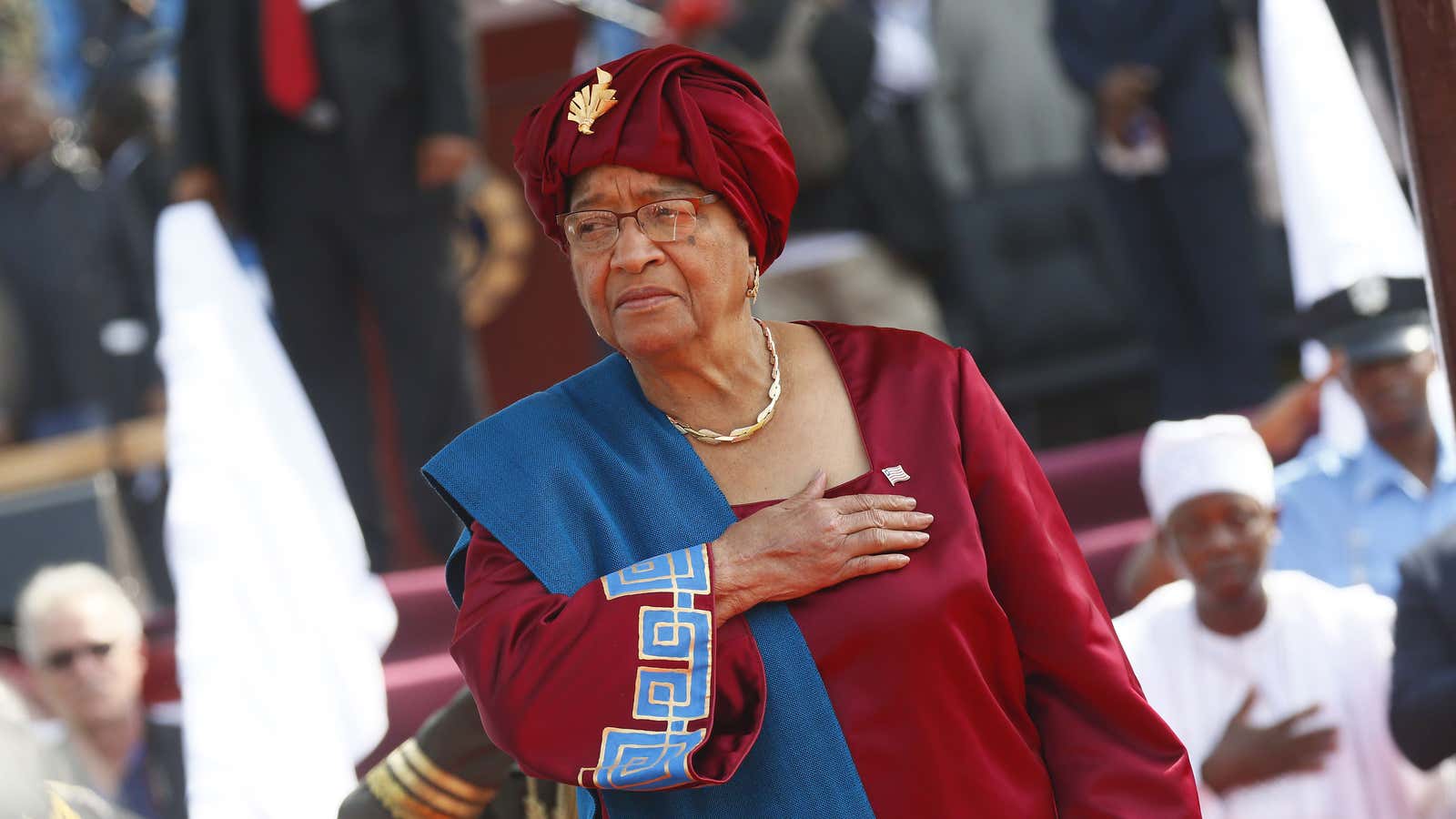After twice skipping announcing a winner, the 2017 Mo Ibrahim Prize for Achievement in African Leadership has been awarded to Liberia’s former president, Ellen Johnson Sirleaf.
Sirleaf, the continent’s first elected female president, left office in late January, after overseeing the first democratic transfer of power in Liberia since 1944. The 79-year-old Nobel laureate came to power in 2006, just two years after the end of a 14-year civil war that saw more than 250,000 people killed and another million displaced. During her two terms in office, Sirleaf tackled the spread of Ebola in the West African nation, developed the economy and championed the cause of women.
In their citation, the prize committee commended her “exceptional and transformative leadership” in leading the recovery efforts, strengthening democratic institutions and improving human rights.
The prestigious award is named after Sudanese-British billionaire Mohammed Ibrahim and selects from African heads of state or government who served their constitutionally-mandated terms and left office in the last three years. Exceptional leadership is defined as having developed the country, strengthened democracy, and built equitable prosperity under challenging circumstances. Winners are paid $5 million over a decade and $200,000 annually thereafter.
Since it was first presented in 2007, the award has proved a tall order for many leaders in Africa. In a continent where leaders tend to hold on to power through questionable elections and extend their stay through unpopular constitutional amendments, the prize has been left with a small pool of possible candidates. While taking into account the unique challenges facing political leadership in Africa, the prize’s committee has refused to lower the bar and stuck to its mandate of recognizing only “truly exceptional figures,” skipping awarding the honor in many years.
Sirleaf joins only four African presidents who have been granted the prize namely, Joaquim Chissano of Mozambique (2007), Festus Mogae of Botswana (2008), Pedro Pires of Cape Verde (2011), and Namibia’s Hifikepunye Pohamba (2014).
Despite her popularity and global recognition, Sirleaf left office with a mixed record and trailed by criticism. Despite breaking the “glass ceiling,” she was criticized for not doing enough for women to win seats in government. Her administration’s tackling of the Ebola crisis was also called into question, and Sirleaf herself recently admitted to underestimating the low capacity of skills in government and “the cultural roots of corruption.” These, and other problems, including weak economic growth, unemployment, and the escalating illicit financial outflows are some of the issues her successor, George Weah, will have to deal with in coming years.
